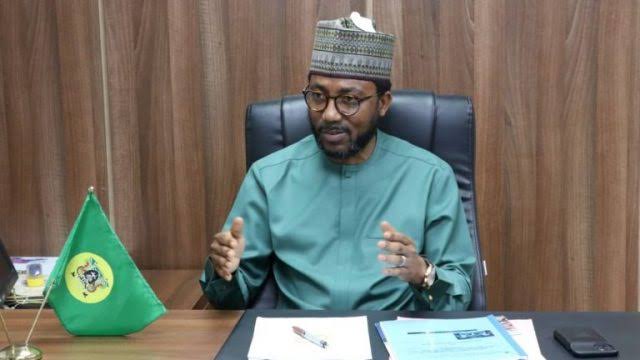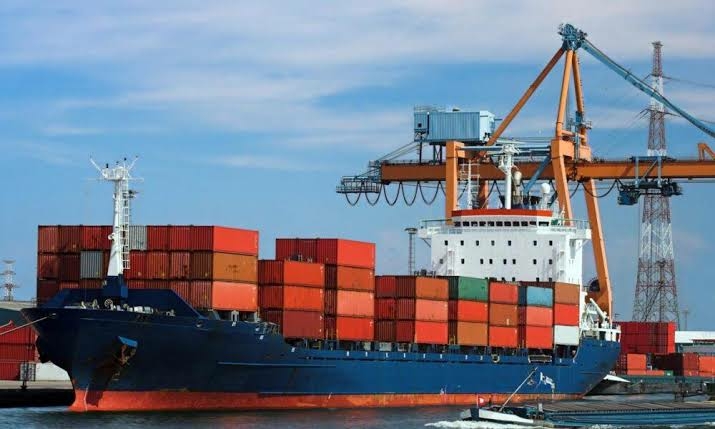The Nigerian Ports Authority (NPA) is taking deliberate steps and investments to create a fully digital ecosystem in all of the country’s port locations by 2025.
Mr Mohammed Bello-Koko, Acting Managing Director of NPA, disclosed this in a statement signed by Mr Ibrahim Nasiru, Assistant General Manager Corporate and Strategic Communications, NPA, on Saturday in Lagos.
According to the statement, Bello-Koko revealed this during a presentation on the NPA’s “Digitalisation Roadmap and Current Information and Communications Technology (ICT) Implementation Status.”
According to the statement, the presentation took place at the 41st Annual Council Meeting of the Ports Management Association of West and Central Africa (PMAWCA) and the 16th Round-table Conference of PMAWCA Managing Directors in Douala, Cameroon.
Bello-Koko informed the delegates that a lot of work had gone into the authority’s smart port transformation agenda, which aimed at instituting paperless, time-saving, and cost-effective port operations.

The NPA’s helmsman, represented by Prof. Idris Abubakar, Executive Director, Engineering and Technical Services, revealed that the NPA first deployed a mainframe computer system in 1975.
The goal of the exercise was to improve the company’s payroll management, billing, statistical, and accounting systems.
“Beginning in 1992, personal computers were deployed at each port location to facilitate data management and information sharing, which was difficult due to the lack of connectivity between the ports.”
“Following the concession of port terminals in 2006, the authority reviewed its ICT strategy in 2011 in line with its new role as landlord.”
“The new strategy’s primary focus is on enterprise computing and heavy reliance on network infrastructure, as well as a centralized and shared database,” he explained.
Bello-Koko stated that NPA’s phased ICT deployment was aimed at achieving a fully integrated port operating system.
He stated that it would strengthen relationships with all internal and external stakeholders, streamline NPA’s internal business processes, employ cutting-edge smart technologies, and record, monitor, and use data for better decision making.
“The Authority is now implementing a five-year plan to achieve a fully digitalized port system in Nigeria.”
“To date, the authority has deployed a portfolio of systems and infrastructure to realize its ICT objectives.”
“These include Oracle Enterprise Business Suite for financial and human resource planning; Billing/Revenue and Invoice Management System (RIMS) for expedited billing processing; and Customer Portal/electronic Ship Entry Notice (eSEN)/Manifest Upload for shipping traffic management.”
“Others include Hyperion Budgeting for annual budget management and the Command, Control, Communication, and Intelligence System (3Ci) for maritime domain awareness.”
“As well as vessel call management; truck call up and gate access control for the control and scheduling of trucks to the ports, as well as managing truck traffic around the port corridor,” he added.
He stated that, with several disruptions to the international supply chain, the authority intended to focus on the port’s smartness level rather than its size in order to optimize productivity and meet port users’ expectations.
According to him, the goal of NPA is to use technology to bridge the gap between us and major international ports.
“A digitalized port allows for better-informed operational decisions, increased efficiency, improved stakeholder collaboration, and lower port costs.”
“Ultimately, it will assist in meeting the ever-increasing customer expectations in a timely manner,” he said.
Earlier, Mr Micheal Luguje, President of PMAWCA and Director-General of Ghana Ports and Habours Authority (GPHA), described the conference theme as “Digitalised Port as a Model of Port Efficiency.”
It was relevant, according to Luguje, because COVID-19 had taught everyone, more than ever, that we live in a very fragile world.
“The dynamics of global trade and our way of life can change dramatically in a short period of time.”
“The impact of Covid-19 cannot be dismissed so easily.” Countries are now rebuilding after many years of economic progress were lost.
“As maritime leaders tasked with facilitating trade and economic progress for our respective countries, we have come together to have a serious discussion about how we can continue to adapt in the face of this unwavering virus.”
“As well as how to plan and operate our ports in order to meet future challenges.” “The main goal is to investigate various ways of using less to achieve more through the use of smart technologies,” he explained.
According to the statement, the PMAWCA 41st Council Meeting was declared open by Cameroon’s Minister of Transport, Mr Massena Bibehe.
Mr Cyrus Ngo’o, Director-General of the Port of Douala, presided over the roundtable discussion.
The event drew representatives from PMAWCA member ports and sister organizations such as the International Association of Ports and Harbours (IAPH), the International Maritime Organization (IMO), the Maritime Organization for West and Central Africa (MOWCA), the Union of African Shippers Council, and the Abuja MoU.

















Discussion about this post